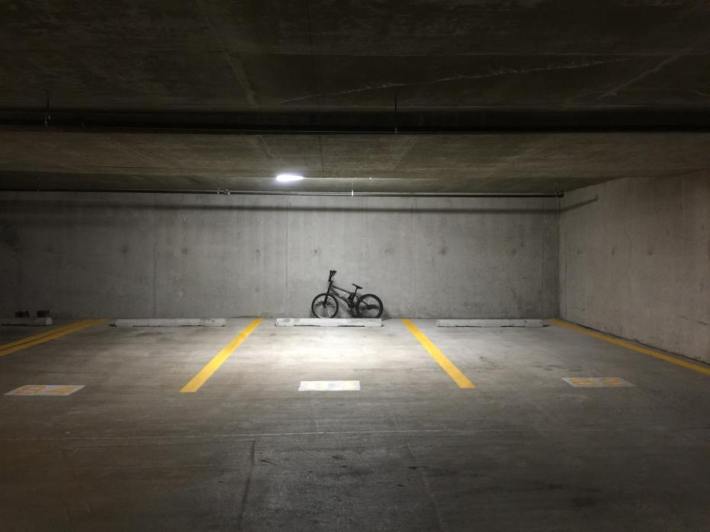The city of Waterloo, Ontario, is in the process of building a new 12-mile light rail line called Ion Rapid Transit. Now the most pressing question is how to make it a success.

Mike Boos at TriTag says the transit line should have no trouble meeting ridership forecasts, with bus routes along the corridor already carrying nearly as many passengers as initially projected. But one lingering concern is the city's policy of mandatory parking. Waterloo still requires new residential and commercial development near light rail stations to include a minimum number of parking spaces. Boos says the city should be doing the reverse:
Parking supply may have a bigger impact people’s choices to take transit than proximity to rail stations [1]. If part of the cost of car ownership is simply hidden as part of the cost of a home, office, or retail space, it’s easier to decide to own and drive a car in spite of good transit being nearby. The default of having abundant free parking everywhere handicaps decisions to walk, bike or take transit.
A level playing field would mean that there’s an extra cost and effort to find a space for your car, so you might think twice about owning an extra car, or using it to go to work or shop.
The proposed Waterloo zoning bylaw does improve upon the status quo for light rail station areas. In Uptown, commercial uses would require 2.1 spaces per 100 square metres, compared with 4 today, and dwelling units would require 0.75 parking spaces each instead of 1. Other station areas would require a little bit more, but would still be lower than elsewhere in the city.
Meanwhile, Boos reports, other Canadian cities are way ahead when it comes to parking policies that complement transit. Hamilton has no parking minimums by light rail, and Ottawa is proposing the same. And both Hamilton and Edmonton impose parking maximums. Boos writes:
Compared with some of its peers, Waterloo’s proposed zoning bylaw parking requirements seem closer to the status quo than a transit-oriented future. If we want to see ION thrive, we should ask for better.
Elsewhere on the Network today: Transit Center examines how Richmond, Virginia, built a political coalition to implement a new bus rapid transit line. Philadelphia Bicycle Journal makes the case against decorative but expensive bike racks. And Renew ATL reports that Atlanta Mayor Kasim Reed has called the upcoming referendum to expand MARTA a "turning point" for the city.





